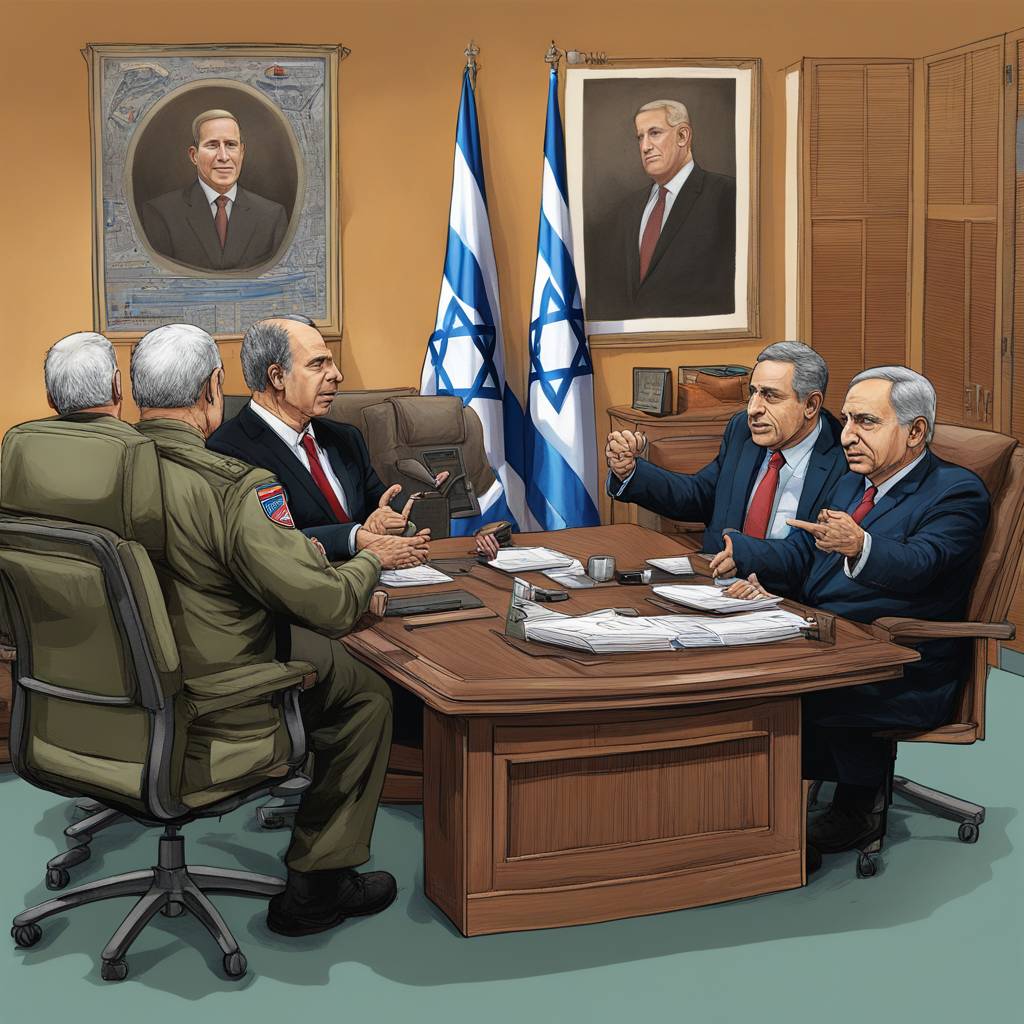American and Israeli officials are engaging in virtual talks to discuss the potential expansion of Israel’s war against Hamas to the southern Gaza city of Rafah, a move the U.S. opposes on humanitarian grounds. The officials met by secure video conference after planned in-person talks were canceled by Israeli Prime Minister Benjamin Netanyahu when the U.S. didn’t veto a U.N. resolution calling for an immediate ceasefire in Gaza. The U.S. anticipates that expert teams will follow up on the talks in person, despite the challenges in the relationship between the two countries.
President Joe Biden and his administration have been urging Israel for months to refrain from a large-scale incursion into Rafah, where over 1.3 million civilians have fled from other parts of Gaza, without a credible plan to relocate and safeguard noncombatants. Netanyahu, however, believes that Israel must be able to enter the city to root out Hamas’ remaining brigades and eradicate the group after an attack on Israel. The potential operation in Rafah has exposed a deep divide between Israel and the U.S., its closest ally, funder, and arms supplier. Concerns have been raised about the humanitarian impact of a possible invasion, especially during the ongoing conflict in the region.
The U.S. has been vocal in its stance that Israel must do more to allow food and other goods through its blockade of Gaza to prevent a famine. White House press secretary Karine Jean-Pierre stated that Jake Sullivan, Biden’s national security adviser, was leading the U.S. delegation in the meeting with Israeli officials. The meeting was rescheduled from the original date to address the pressing issues surrounding the potential expansion of the conflict. The relationship between Israel and the U.S. has faced strain in recent times due to differing approaches to resolving the conflict and ensuring the safety of civilians in the region.
Netanyahu, ahead of surgery, has vowed that Israel will invade Rafah despite pressure from the U.S. and concerns raised by humanitarian organizations. The Israeli leader is determined to proceed with the operation in order to deal a decisive blow to Hamas and assert Israeli control over the territory. The U.S. is working to mediate between the two parties and find a peaceful resolution to the escalating tensions. The situation remains fragile, with the potential for further violence and humanitarian crises in Gaza if a peaceful solution is not reached between the parties involved.
The expulsion of over 1.3 million civilians from Rafah has added to the urgency of finding a resolution to the conflict, as the humanitarian situation in the region continues to deteriorate. The U.S. is advocating for a coordinated effort to address the needs of civilians in the region and prevent further suffering. The security situation in Rafah remains tense, with the possibility of an Israeli invasion adding to the uncertainty and fear among the population. The international community is closely monitoring the situation and calling for a peaceful resolution to the conflict that takes into account the welfare of all those affected by the ongoing violence.
The potential expansion of Israel’s war against Hamas to Rafah has sparked concerns about the impact on civilians and the humanitarian situation in the region. The U.S. is working to address these concerns and facilitate a peaceful resolution to the conflict through diplomatic channels. The strained relationship between Israel and the U.S. adds a layer of complexity to the situation, requiring careful navigation and dialogue to prevent further escalation of violence. The international community is watching closely as efforts are made to avoid a humanitarian crisis in Rafah and ensure the protection of civilians caught in the crossfire of the conflict.













